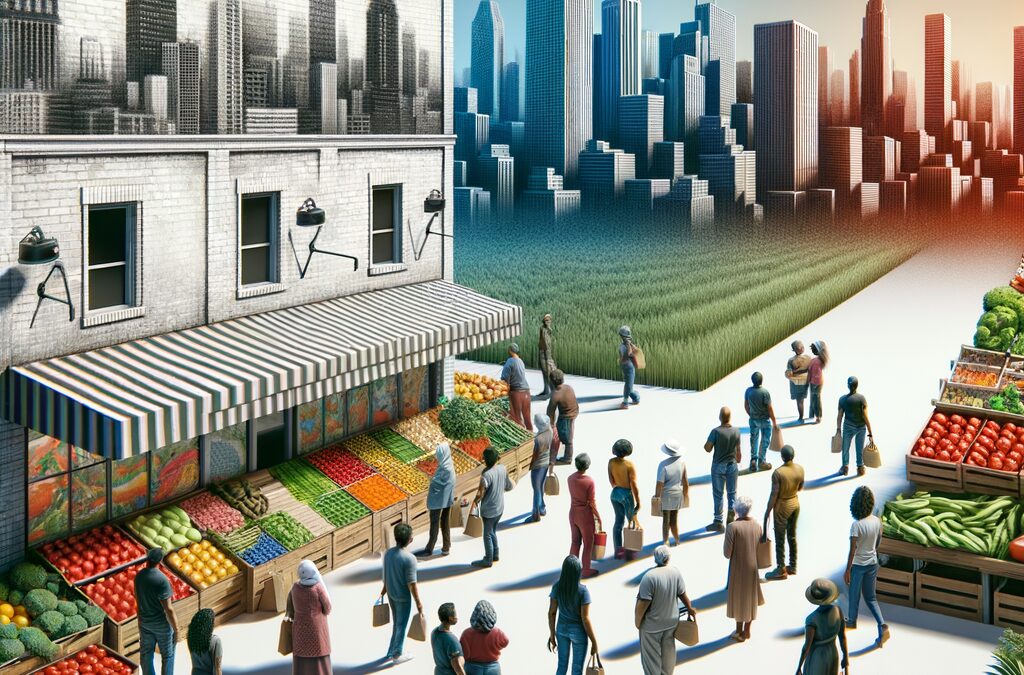Rockford, Illinois – Residents of Rockford’s West Side continue to face significant challenges in accessing healthy and reliable groceries, particularly following the relocation of Aldi to Riverside Boulevard in November. The impact of this relocation has been keenly felt, as the nearest grocery store now lies over three miles away. For many residents, transportation remains a critical issue, necessitating reliance on buses to transport their groceries. Longtime community members, such as Sandra Bland, who has called the area home for 30 years, express the difficulty faced by elderly individuals in navigating these obstacles.
While stores like Family Dollar and Walgreens are present in the area, community members like Albert Ford point out that they do not offer the comprehensive range of products needed to meet the diverse needs of West Side residents. The absence of essential resources, including full-service grocery stores, has significantly impacted the quality of life for residents like Nora Bennett. Over the years, Bennett has observed a decline in accessible options, leaving many without convenient access to fresh produce and other essential food items.
Beyond groceries, the West Side community also emphasizes the importance of other necessities such as banks, chain grocery stores, and cleaners. Albert Ford’s sentiment reflects a shared desire for equal access to essential services, mirroring what is available on the more affluent East Side of Rockford.
In response to the growing interest in dollar stores providing fresh produce and health food items in food deserts, both Dollar Tree and Dollar General have reassured their commitment to enhancing the shopping experience and meeting customer needs. These statements from the retail chains highlight the ongoing efforts to address the lack of accessibility to nutritious options in underserved areas.
As the West Side continues to grapple with a limited availability of resources, community members underscore the importance of ensuring equitable access to a wide range of services for all residents. Advocacy groups, local government, and concerned citizens are actively working together to bridge the gap and create a more vibrant and inclusive community.

